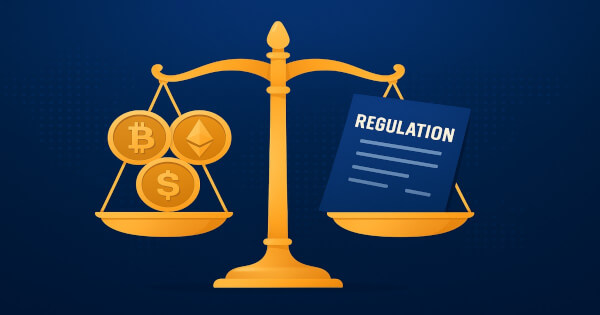Crypto Regulation Around the World: The Rules Every Investor Should Know
Khushi V Rangdhol Aug 11, 2025 06:36
Explore crypto regulation worldwide in 2025—taxes, trading, and key investor rules in the US, EU, India, UAE, China, and more.

Cryptocurrency has become a global phenomenon, but the rules governing bitcoin, altcoins, and blockchain businesses are far from uniform. In 2025, the regulatory landscape is a patchwork of laws, restrictions, and opportunities—varying greatly by region. For investors, understanding these rules is critical to staying compliant, protecting assets, and spotting new opportunities.
Why Crypto Regulation Matters
As crypto adoption increases, governments are tightening—and sometimes loosening—regulatory frameworks. The rise of ransomware, high-profile exchange collapses, and a new class of digital assets like stablecoins and tokenized stocks have pushed regulators to act. For investors, regulation shapes everything from taxation to which projects can legally operate in a given country.
Key Crypto Regulation Hotspots in 2025
United States
The US regulatory environment remains complex but is seeing more clarity:
- The SEC, CFTC, and IRS play distinct roles—classifying some cryptos as securities and others as commodities.
- Bitcoin and Ethereum remain legal to trade. Most major exchanges require strict Know Your Customer (KYC) checks.
- Stablecoins are under enhanced scrutiny due to concerns around reserves and consumer protections.
- The IRS taxes crypto as property, so every sale or swap is potentially a taxable event.
European Union
The EU leads in actively publishing region-wide rules for digital assets:
- The Markets in Crypto-Assets (MiCA) regulation took effect in 2025, creating a single framework for exchanges, token issuers, and stablecoins.
- Wallet providers and exchanges must register, follow KYC/AML standards, and meet reserve and transparency requirements.
- Some countries, like Germany and France, continue to have additional local registration or tax rules.
India
India’s approach has shifted toward regulation instead of outright bans:
- All crypto trades are taxed, and profits must be declared. Offences are punishable by fines, occasionally jail time.
- Exchanges are required to register with the government and implement KYC and reporting standards.
- RBI's digital rupee (CBDC) is fully legal, but “private” coins are under ongoing review.
Middle East (UAE, Saudi Arabia)
- The UAE is a leader in embracing crypto, with Dubai granting licenses for major global exchanges.
- Clear licensing for custodians, exchanges, and tokenization businesses are available through Virtual Assets Regulatory Authority (VARA).
- Saudi Arabia and Qatar have tighter rules but are expanding pilots for national stablecoins and digital assets.
China
- China maintains a ban on retail crypto trading, mining, and ICOs, but promotes blockchain for business and operates its own digital yuan (CBDC).
Other Regions
- Japan: Stringent registration for exchanges, strong consumer protection, clear guidelines since 2017.
- Australia and Singapore: Progressive, with licensing and tax clarity, but robust KYC/AML obligations.
- Africa & Latin America: Mixed markets, with some countries (Nigeria, Brazil, El Salvador) promoting digital assets, others issuing outright warnings or bans.
What Investors Need to Watch For
- KYC & Taxation: Most investments now require identity verification. International transactions can trigger extra tax reporting.
- Stablecoin and DeFi rules: New rules often target “algorithmic” stablecoins, DeFi platforms, and yield products.
- Exchange License Lists: Always use exchanges licensed in your region to ensure legal protection and recourse.
- CBDC and Tokenization Projects: As governments launch their own digital currencies and tokenized asset pilot programs, be aware of local compatibility and access.
The Trend: Towards Clarity, But Not Uniformity
2025 will be remembered as a year of regulatory advances—but also of sharp contrasts. While some regions embrace innovation, others issue fresh warnings or clamp down on crypto activities. Investors need to stay alert, adapt, and keep an eye on the global rulebook as it evolves.
Key Takeaway
Regulation is reshaping crypto investment around the world. Understanding—and complying with—local rules is essential for every investor, whether you’re trading Bitcoin, exploring DeFi, or holding NFTs. Research, use registered exchanges, and stay informed to keep your assets safe and your strategy future-proof.
Image source: Shutterstock

.jpg)